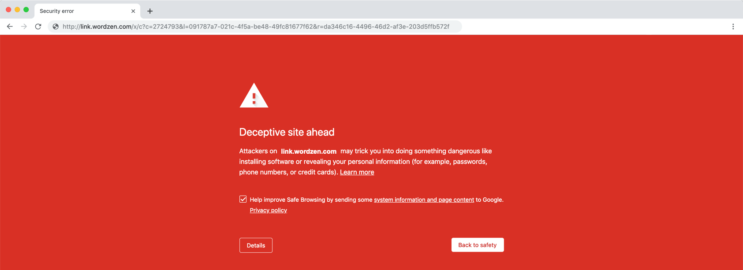Long before Gmail became smart enough to finish your sentences, Google’s now-ubiquitous email service was buttering up the public for a fate that defined the internet age: if you’re not paying for the product, you are the product.
When Gmail was announced on April 1, 2004, its lofty promises and the timing of its release reportedly had people assuming it was a joke. It wasn’t the first web-based email provider — Hotmail and Yahoo! Mail had already been around for years — but Gmail was offering faster service, automatic conversation grouping for messages, integrated search functions and 1GB of storage, which was at the time a huge leap forward in personal cloud storage. Google in its press release boasted that a gigabyte was “more than 100 times” what its competitors offered. All of that, for free.
Except, as Gmail and countless tech companies in its wake have taught us, there’s no such thing as free. Using Gmail came with a tradeoff that’s now commonplace: You get access to its service, and in exchange, Google gets your data. Specifically, its software could scan the contents of account holders’ emails and use that information to serve them personalized ads on the site’s sidebar. For better or worse, it was a groundbreaking approach.
“Depending on your take, Gmail is either too good to be true, or it’s the height of corporate arrogance, especially coming from a company whose house motto is ‘Don’t Be Evil,’” tech journalist Paul Boutin wrote for Slate when Gmail launched. (Boutin, one of its early media testers, wrote favorably about Google’s email scanning but suggested the company implement a way for users to opt out lest they reject it entirely.)
There was immediate backlash from those who considered Gmail to be a privacy nightmare, yet it grew — and generated a lot of hype, thanks to its invite-only status in the first few years, which spurred a reselling market for Gmail invitations at upwards of $150 a pop, according to TIME. Google continued its ad-related email scanning practices for over a decade, despite the heat, carrying on through Gmail’s public rollout in 2007 and well into the 2010s, when it really started gaining traction.
And why not? If Gmail proved anything, it was that people would, for the most part, accept such terms. Or at least not care enough to read the fine-print closely. In 2012, Gmail became the world’s largest email service, with 425 million active users.
Other sites followed Google’s lead, baking similar deals into their terms of service, so people’s use of the product would automatically mean consent to data collection and specified forms of sharing. Facebook started integrating targeted ads based on its users’ online activities in 2007, and the practice has since become a pillar of social media’s success.
Things have changed a lot in recent years, though, with the rise of a more tech-savvy public and increased scrutiny from regulators. Gmail users on multiple occasions attempted to bring about class-action lawsuits over the scanning issue, and in 2017, Google finally caved. That year, the company announced that regular Gmail users’ emails would no longer be scanned for ad personalization (paid enterprise Gmail accounts already had this treatment).
Google, of course, still collects users’ data in other ways and uses the information to serve hyper-relevant ads. It still scans emails too, both for security purposes and to power some of its smart features. And the company came under fire again in 2018 after The Wall Street Journal revealed it was allowing third-party developers to trawl users’ Gmail inboxes, to which Google responded by reminding users it was within their power to grant and revoke those permissions. As CNET reporters Laura Hautala and Richard Nieva wrote then, Google’s response more or less boiled down to: “This is what you signed up for.”
Really, what users signed up for was a cutting-edge email platform that ran laps around the other services at the time, and in many ways still does. It made the privacy concerns, for some, easier to swallow. From its inception, Gmail set the bar pretty high with its suite of free features. Users could suddenly send files of up to 25MB and check their email from anywhere as long as they had access to an internet connection and a browser, since it wasn’t locked to a desktop app.
It popularized the cloud as well as the Javascript technique AJAX, Wired noted in a piece for Gmail’s 10-year anniversary. This made Gmail dynamic, allowing the inbox to automatically refresh and surface new messages without the user clicking buttons. And it more or less did away with spam, filtering out junk messages.
Still, when Gmail first launched, it was considered by many to be a huge gamble for Google — which had already established itself with its search engine. “A lot of people thought it was a very bad idea, from both a product and a strategic standpoint,” Gmail creator Paul Buchheit told TIME in 2014. “The concern was this didn’t have anything to do with web search.”
Things obviously worked out alright, and Gmail’s dominion has only strengthened. Gmail crossed the one billion user mark in 2016, and its numbers have since doubled. It’s still leading the way in email innovation, 20 years after it first went online, integrating increasingly advanced features to make the process of receiving and responding to emails (which, let’s be honest, is a dreaded daily chore for a lot of us) much easier. Gmail may eventually have changed its approach to data collection, but the precedent it set is now deeply enmeshed in the exchange of services on the internet; companies take what data they can from consumers while they can and ask for forgiveness later.
This article originally appeared on Engadget at https://www.engadget.com/from-its-start-gmail-conditioned-us-to-trade-privacy-for-free-services-120009741.html?src=rss





